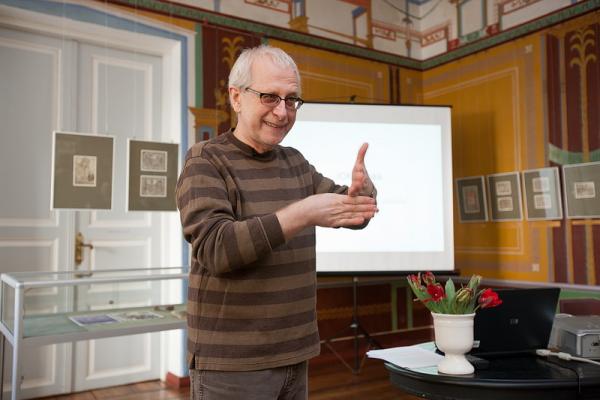Tiit, you are Journalismfund.eu’s last original jury member to be replaced. How do you look back on your time in the jury?
With pleasure. I have to say I was somewhat surprised when Brigitte Alfter contacted me and asked if I wanted to be part of an international jury. I am from the “former Soviet Union” and am not a practicing journalist. I have been a coach, or whatever you want to call it – a teacher, an adviser – for about 25 years.
There were four people in the original jury. We each had different areas of expertise, different backgrounds etc. The most surprising to me was the fact that our meetings – which took place via Skype – were very efficient. We would almost always reach an agreement quickly.
Have you seen a lot of change since those early days, e.g. in the way the jury works, the applications, the proposed methods of the applicants, etc.?
Not too much, to be honest.
What disappointed you in the average application; what would you advise applicants to put more thought into or to do differently?
There were too many applications that lacked clear focus for me. I have always taught journalists that their projects must have a very clear focus; if not, the journalists will work like vacuum cleaners just sucking up as much as they can without distinguishing the important things from the unimportant. In this area at times there were disagreements in our jury. How vague can a project be to still be eligible? That sort of thing.
Also, some applicants didn’t make a difference between investigative journalism, scientific research and feature. Applicants should ask themselves: what’s new in my project? What new thing will I say?
And what surprised you in a positive way about some applications?
Although I knew that Estonian investigative journalists are good, I didn’t know that much about Eastern and Central Europe. It really surprised me how good the proposals from Eastern Europe were. But in general I would say that the best applications were the ones where the applicants found a new interesting way of looking at old problems. That doesn’t mean I’m only interested in the classical investigative topics; I very much like projects that foresee new, rising problems in society, too.
In 2015 the European Press Prize’s Innovation Award went to the Migrants Files, a project you and your three colleagues in the Journalismfund.eu jury allocated a grant to. The EPP jury stated that “the greatest innovation in journalism was the rapid growth in cross-border investigations between reporters working for different but co-operating newsrooms”. Do you feel you and Journalismfund.eu have contributed to this innovation?
I can be very short on this: yes. And I think it’s of massive importance. Cooperation, not rivalry, is what European journalism needs now more than ever.
Is cross-border journalism finding its way to the mainstream media? In other words, how necessary is an organisation like Journalismfund.eu still?
I think that now, after the Paris and Brussels attacks, after the Panama Papers investigation, people are starting to realise how necessary cross-border journalism is. And, relating to that, how necessary Journalismfund.eu is.
Furthermore, it is important that young journalists who are eager to cross borders and collaborate transnationally get feedback and advice from a competent jury. Journalismfund.eu gives them that opportunity.
Finally, what is the most important thing you take away from your time in the jury? Either a piece of advice, an observation or something else. It can concern journalistic method, European themes, the character of the story ideas…
More real cross-border collaboration, please! Of course, more journalists from neighbouring countries have to work together, but that in itself is not enough. There has to be more cross-border collaboration between Western and Eastern Europe, too, especially between Western Europe and countries of the “former Soviet Union”.
To conclude with a piece of advice to journalists: read your colleagues’ work before you begin your own project. I believe that that has become very important in journalism nowadays.
Thank you for taking the time!
Photo © University of Tartu / Andres Tennus
